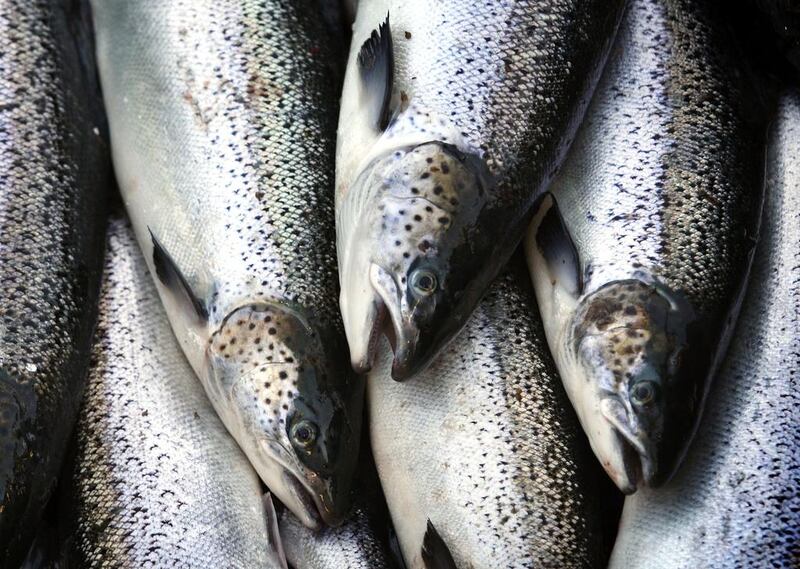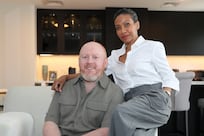Salmon Fishing in the Yemen is a bestselling novel that was adapted into a movie starring Ewan McGregor and Emily Blunt.
Salmon farming in the UAE, however, will involve actual salmon farming facilities in Abu Dhabi.
Asmak, the international fish farming holding company, yesterday announced plans to introduce land-based salmon farming in Abu Dhabi’s Western Region, the first such facility of its kind in the Arabian Gulf.
Asmak has admitted that the Western Region is a “challenging environment” for salmon farming. Water temperatures need to maintained at 13°C, whereas local sea waters reach up to 40°C.
The Abu Dhabi-based company claims that the new plant will cut the cost of salmon in the UAE by 30 to 50 per cent, reducing reliance on imports from markets such as Norway and Ireland.
“This pioneering project will rely on a dedicated team including enthusiastic local farmers who will be constantly updated on international practices by visiting experts from Norway and Ireland,” Asmak said in a statement.
The farm will cover an area of 500,000 square metres and produce 4,000 tonnes of fish a year. Barramundi and subaiti will also be cultivated.
Work on the farm started last month, and is expected to be completed in the first half of next year.
Attached to the salmon farming facility will be a cluster for small fish farmers, consisting of 50 farms to annually produce 100 tonnes of sea bream and endangered species of fish.
UAE residents consume about 1,000 tonnes of salmon a year, according to Tamer Yousef, Asmak’s marketing manager.
“Consumption is on the increase. People are adjusting their diets from red meat to white meat, from chicken to fish, and are eating more healthy types of fish, such as salmon and sea bream,” he said.
The company also said that it was studying the development of an offshore sea cages farm on Dalma Island. The possible farm, covering an area of 250,000 square metres, would consist of 50 cages for the production of hammour, subaiti and sea bream.
jeverington@thenational.ae





